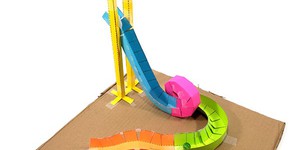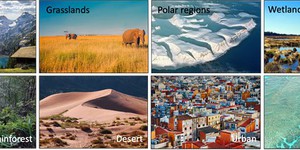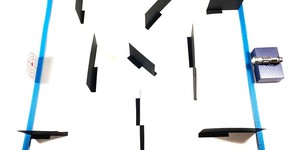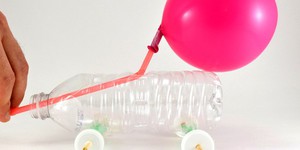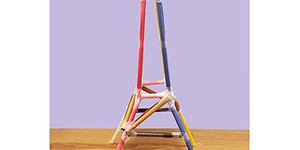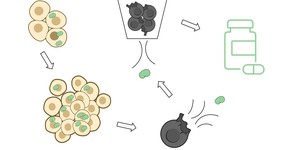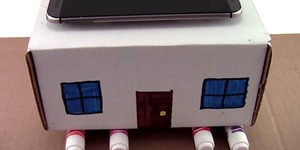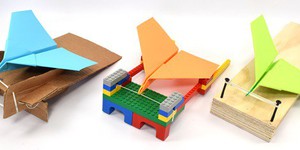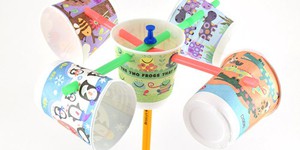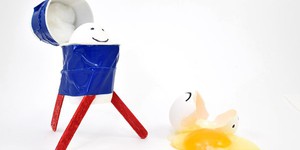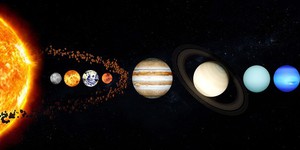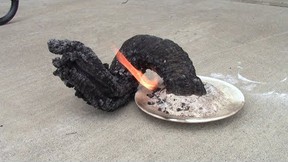Lesson Plans (252 results)
Free science lesson plans designed to engage students through hands-on experiments and activities. Chemistry, life sciences, physics, engineering and more, for elementary, middle and high school teachers.
|
Select a resource
Sort by
|
Lesson Plan
Grade: 6th-8th
37 reviews
What goes up, must come down in this thrill-seeking lesson plan! How much energy does a roller coaster car need to make it through a loop? In this lesson your students will learn about kinetic and potential energy as they build their own roller coasters from simple classroom materials.
Read more
NGSS Performance Expectations:
Lesson Plan
Grade: Kindergarten
36 reviews
In this lesson, students play a game. Each classroom corner represents a habitat. After selecting an animal card, students have to move to the matching habitat while acting out the animal displayed on their card. By explaining why they selected a certain habitat, students realize that a habitat is a place that helps an animal survive.
Read more
NGSS Performance Expectations:
Lesson Plan
Grade: 6th-8th
15 reviews
When light interacts with an object, it can be absorbed, transmitted, or reflected. This lesson focuses on materials that reflect light. Specifically, students will use mirrors and flashlights to investigate how light is reflected from a surface. By doing that, they will discover that when a light ray hits a reflective surface, its angle of incidence is equal to the angle of reflection, which is stated by the law of reflection. Students will then use their gained knowledge in a mirror maze…
Read more
NGSS Performance Expectations:
Lesson Plan
Grade: 6th-8th
35 reviews
Your students will design, build, and race balloon-powered cars in this fun lesson plan that teaches about engineering design and kinetic and potential energy.
Read more
NGSS Performance Expectations:
Lesson Plan
Grade: 3rd-5th
10 reviews
Teach your students about the engineering design process with this fun lesson plan. They will design and build the tallest possible tower using nothing but paper and tape, but there's an additional twist on this classic activity. The tower must support a heavy weight at the top without collapsing! Teachers, note that middle school and high school versions of this lesson plan are also available. The 2021 Engineering Challenge is over, but you can still try this fun lesson with your students,…
Read more
NGSS Performance Expectations:
New
Lesson Plan
Grade: 6th-9th
In this lesson plan, students will model the complex biologic manufacturing process. First, they will model the cellular expansion process that occurs in a bioreactor. Then, students will lyse the cells to isolate the proteins from the dyed cell debris. Lastly, they will model the advanced filtration process to purify proteins so they can be used as medicines.
Read more
NGSS Performance Expectations:
Lesson Plan
Grade: 6th-8th
10 reviews
Explore how technology can save lives in this fun engineering lesson plan! Earthquakes can cause devastation and loss of life when they strike, but earthquake-resistant buildings can stay standing and keep people safe. In this project, your students will build model earthquake-resistant buildings and measure their movement during a simulated earthquake using a mobile phone and a sensor app.
A French translation of this activity is available.
Read more
NGSS Performance Expectations:
Lesson Plan
Grade: 6th-8th
9 reviews
Aircraft carriers are much shorter than a typical airport runway. How do airplanes manage to gain enough speed for takeoff over such a short distance? A catapult gives them an extra boost! In this lesson, your students will practice engineering design as they build their own paper airplane launchers, while learning about kinetic and potential energy.
Read more
NGSS Performance Expectations:
Lesson Plan
Grade: 3rd
17 reviews
Help the budding meteorologists in your classroom learn how to measure wind speed by building their own anemometers (wind speed meters) with paper cups and straws. Then do a simple experiment in which students change the "wind" speed using a fan and measure how fast their anemometer spins.
Read more
NGSS Performance Expectations:
Lesson Plan
Grade: 6th-8th
16 reviews
The egg drop project is a time-honored tradition in many science classrooms. Students build a device to protect an egg and prevent it from breaking when dropped. This project typically relates to lessons about Newton's laws of motion or potential and kinetic energy. However, it is also a great way for students to practice the engineering design process, and learn about the importance of design iteration and learning from failure.
Read more
NGSS Performance Expectations:
Lesson Plan
Grade: 6th-8th
5 reviews
This hands-on science lesson will help your students get a more accurate view of the solar system by making a scale model. They will do the calculations, make model planets, and find out where to place them so their model reflects reality. Seeing the relative size of the eight planets and their distance from the Sun displayed before them will allow your students to grasp the structure and vastness of the solar system.
Read more
NGSS Performance Expectations:
|

